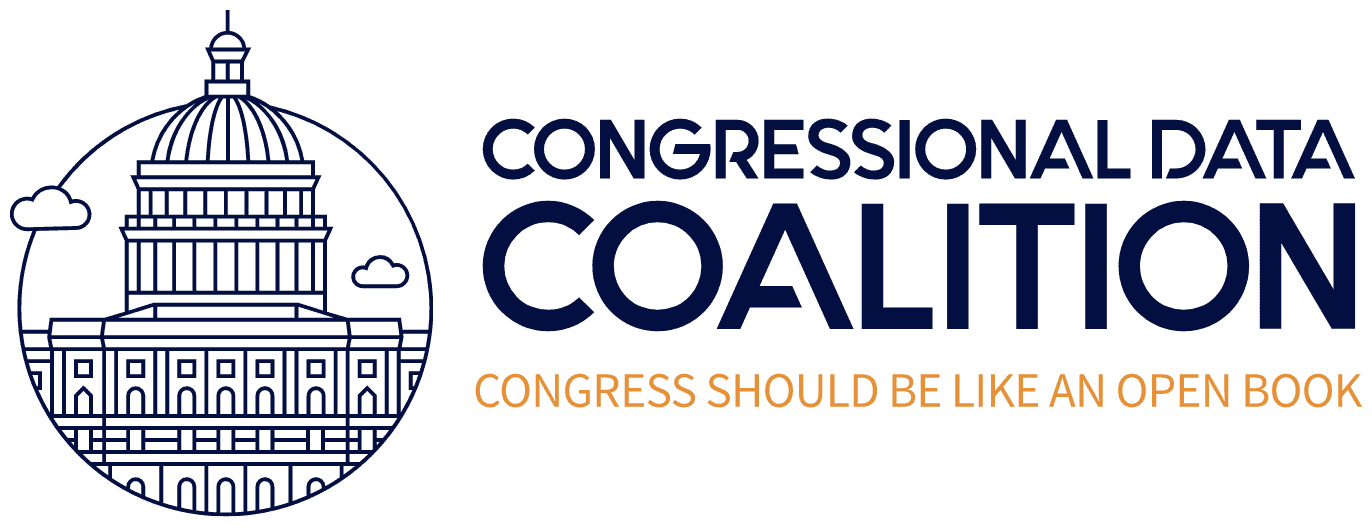Last week the Bulk Data Task Force (BDTF) convened internal and external stakeholders to discuss, you guessed it, congressional data.
Established in 2012, the BDTF brings together parties from across the legislative branch—including the House Clerk, the Secretary of the Senate, Government Publishing Office (GPO), Library of Congress (LOC), and more—as well as external expert groups to make congressional information easier to access and use.
Scroll down for a list of tools, both currently available and in the works, as well as announcements from the meeting.
New Tools
In development phase
“Track changes” for legislation: The Clerk is working on a platform that will allow for comparing versions of legislation; staff will be able to see how an amendment changes a bill and a bill changes a law. A version of the tool is already available to the House Office of Legal Counsel and a minimum viable product will be available to legislative counsels in August or September. The full version of the tool could be available at the end of next year, but TBD if it is for internal use only.
In research phase
Automated bill sponsorship tool. There are about 135,000 co-sponsorships on bills every Congress; the Clerk’s office currently spends five hours of each day in session collecting handwritten sponsor sheets and inputting names. The Clerk is examining the viability of creating an automated tool that provides a list of bills available for co-sponsorship online and, through secure means, allow Members to request their names be added to a bill.
Unique identifiers for lobbyists. Currently, lobbyists are assigned unique identifiers (IDs) but those are not disclosed to the public; this makes tracking lobbyist activity very difficult. For example, if someone fills out their lobbying forms and there’s a typo, or they write their full name one year and a nickname the following year, there’s no way to tell that all these forms are covering one individual’s activity.
In discussion phase
A live feed of House floor votes. No plans have been made yet.
Available now:
An API for bill status in the Bulk Data Repository. You can find the GovInfo API here; to access it you will need a key from APIkey.data.gov.
Standardized committee witness forms in PDF format. Documents’ naming convention is “TTF” so if you’d like to look up witness truth in testimony forms you can go to Docs.House.Gov and search for “TTF.”
Sites
The public can give feedback and submit requests for documents, data, and fixes at github.com/usgpo/bill-status.
Durable links to government information, can be found at GPO’s link service.
RSS feeds for content and metadata can be found at govinfo.gov/feeds.
When in doubt, check out the Legislative Branch Innovation Hub, home base for legislative data
The United States Web Design System is an open source site that brings together government engineers, content specialists and designers to make building government sites easier.
The Tech Timeline covers congressional tech history from the first House telephone in 1880 to the first House website in 1994, plus everything before and after.
New Sites
The Clerk’s Consensus Calendar tracks bills with 290 or more sponsors. According to a new House rule for this Congress, each week the Speaker must pick one of the bills with 290 or more sponsors for 25 legislative days for consideration on the floor.
HouseLive.gov is being moved to a beta version of Live.House.gov.
The in-house video clipping tool has been replaced by FloorClips.House.Gov.
In August, ClerkPreview.House.gov will move out of beta and become Clerk.House.gov. Scrapers using the site may be disrupted or broken.
Announcements
The 2019 Data Transparency Conference will be happening this fall, specific date TBD. Suggestions for topics and dates can be submitted on the github innovation site.
FDSys is officially fully retired. The old federal digital system was replaced by GovInfo.gov which has been online in beta since 2016 and out of beta since January 2018.
Thomas was retired in 2016 and its replacement Congress.gov has had several upgrades. For example, you can now sort search results by subcommittee and historic committee names will auto-populate. Looking ahead, the Library hopes to offer email notifications for committee hearings and meeting information.
You can trust the Government Publishing Office: GPO was certified as an ISO 16363 trustworthy digital repository. It is the first U.S. organization to earn the certification, and the second in the world.
